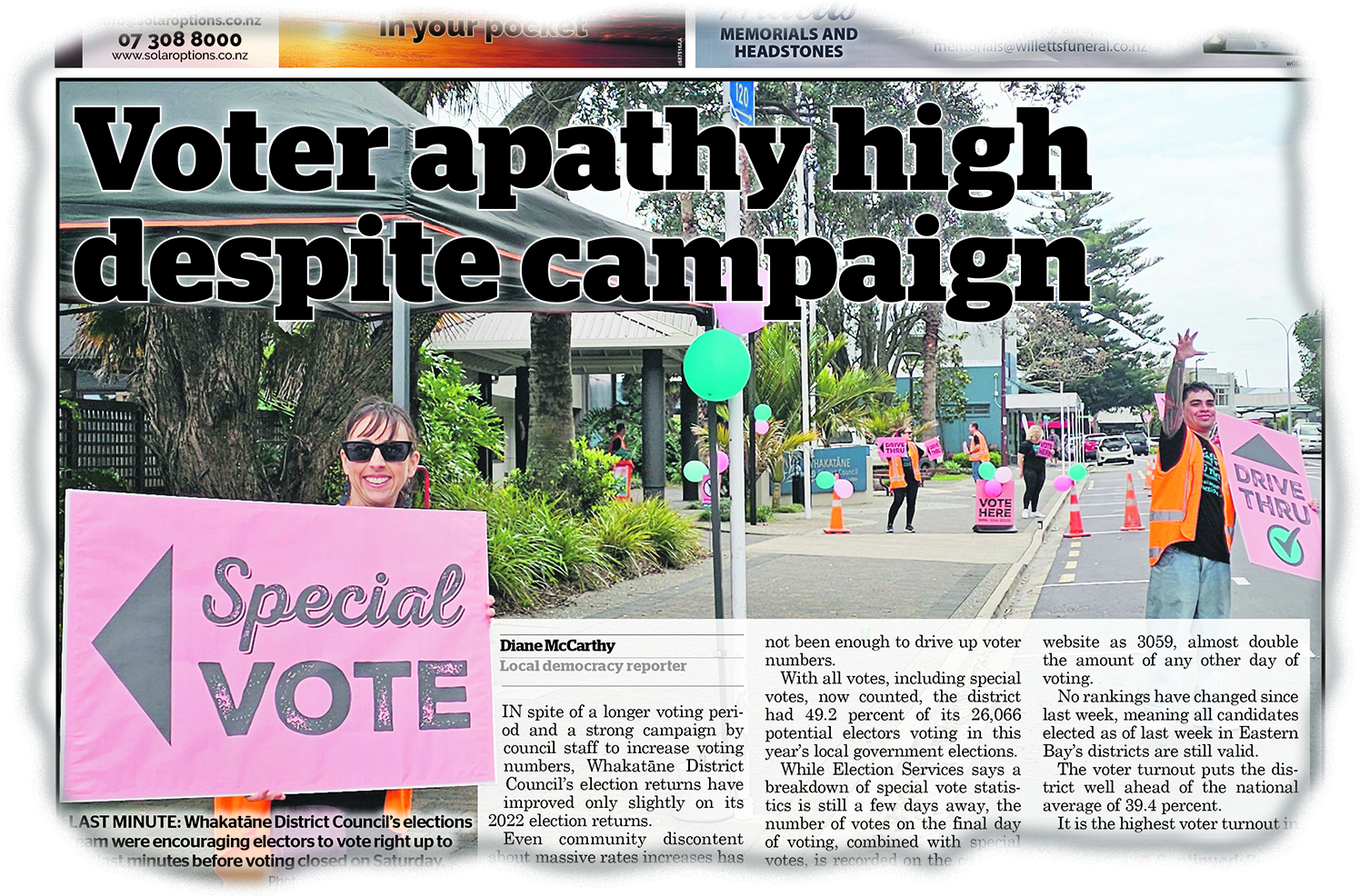Headline criticism

.
J Beattie
Whoever writes the headlines for the Beacon needs a holiday. First was the scaremongering about our new mayor, (October 15).
Then a front page screaming about voter apathy in the election, (October 22) even though Whakatāne’s vote went up.
It was almost 10 points above the national average, but you’d never know from the headline.
I buy the Beacon because I want to read local stories. Sure, not everything in our community is nice, but why spoil even the good news with a negative spin?
Voter turnout was higher than last time, and we elected an exciting new mayor. Those are cause for celebration. Leave the clickbait to lesser rags.
■ The editor responds:
Headlines aim to catch reader attention and usually either sum up a story, or a major point of the story.
The headline of the story about Nandor Tanczos’ successful bid for the mayoralty was “Rates are going up, says mayor elect” and notes his support of “nice-to-haves”.
Both statements are backed up in the story and can hardly be called “scaremongering” or “clickbait”.
The other headline referred to, “Voter apathy high despite campaign”, is also a true reflection of the story and voting in Whakatāne.
Voter returns in Whakatāne were 49.2 percent, slightly up on the previous election’s 45.3 percent, but down on the 52.1 percent of the 2019 election.
So, it could fairly be concluded that the extra effort put in by the council this election to encourage voting did little generally to encourage our apathetic voters to change their ways.
Nationally, Whakatāne was 10 percent above the national average, as you say, but this average was lower than the previous two elections, mainly thanks to the poor turnouts in big centres such as Auckland.
Overall, Whakatāne ranked 28th nationally for district council voter returns.
We always enjoy sharing good news stories, but our job is to present the whole picture, without the spin.